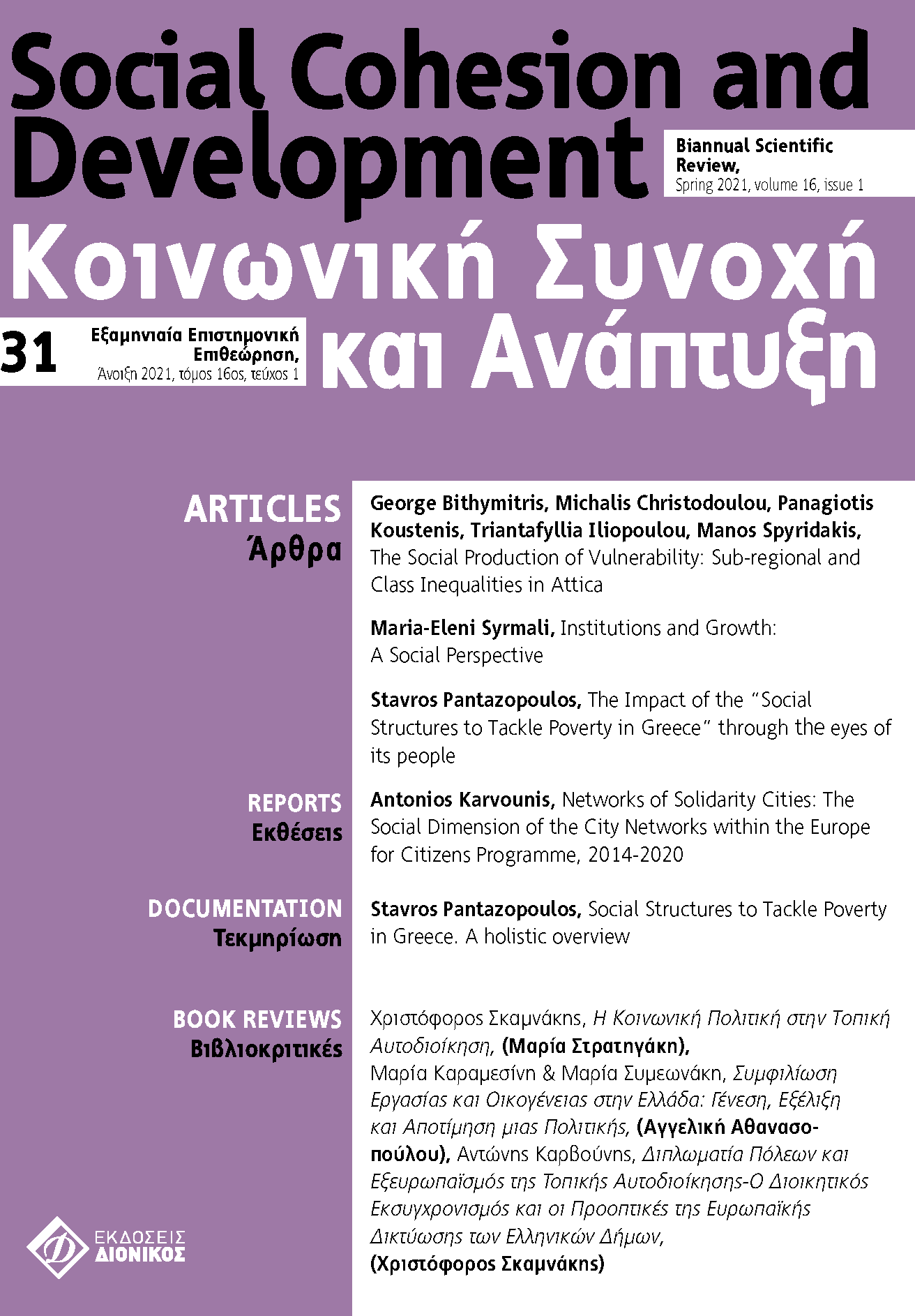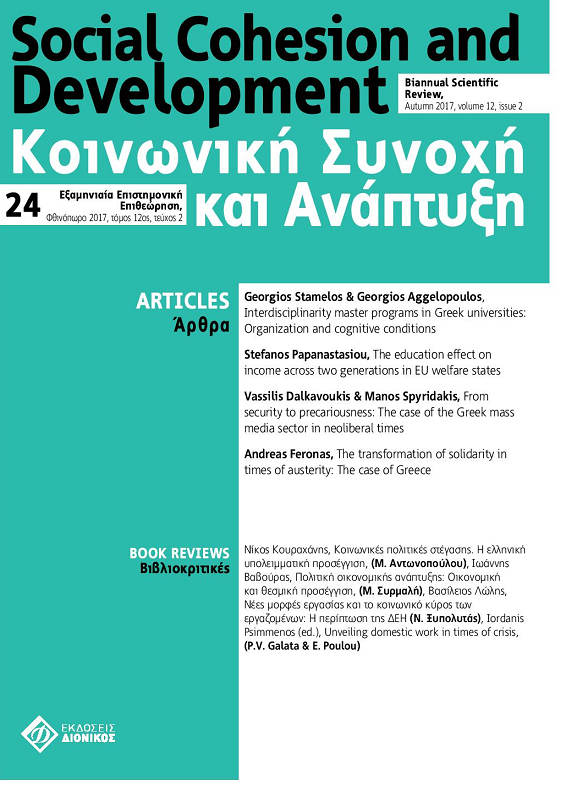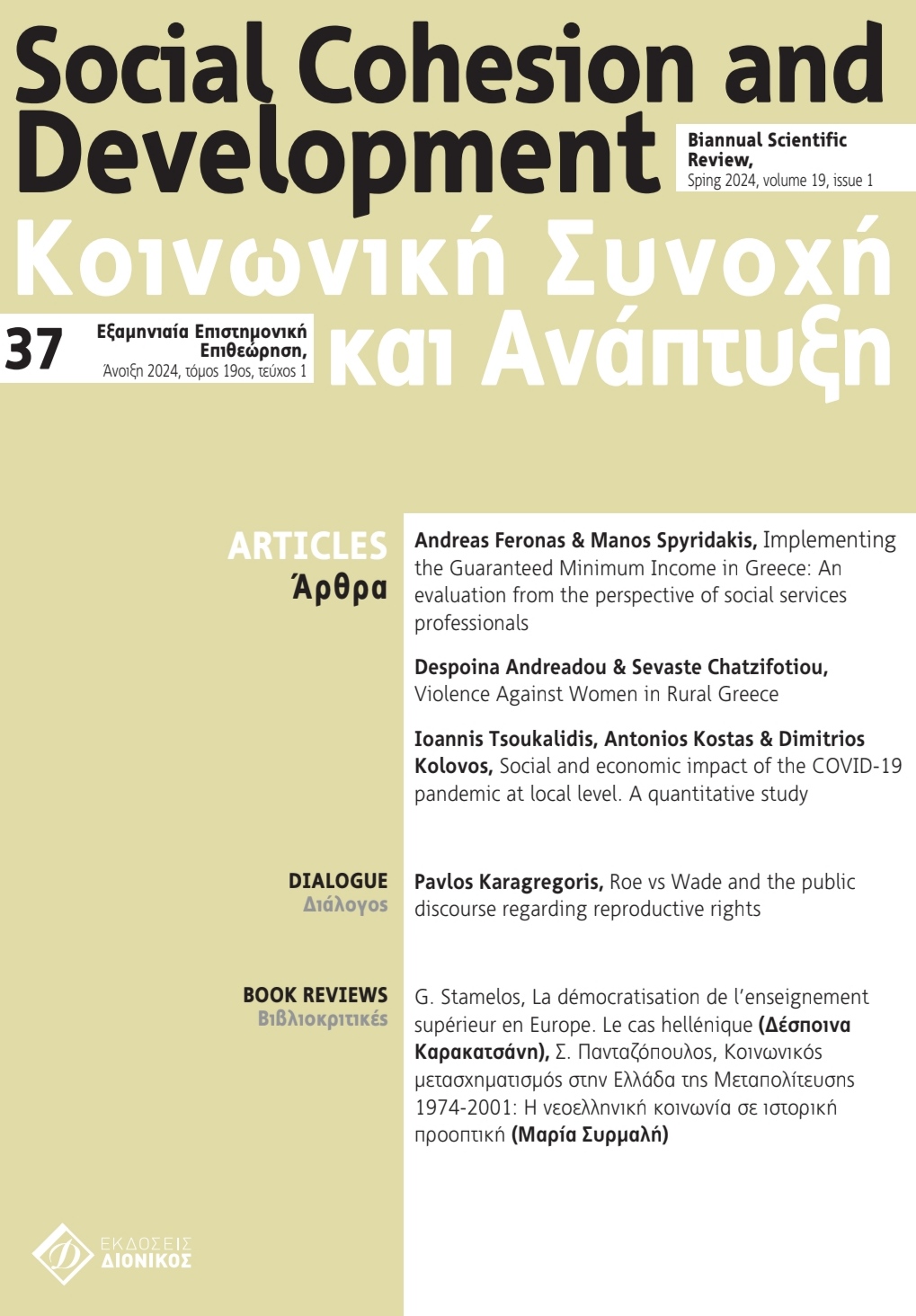The social production of vulnerability: Sub-regional and class inequalities in Attica
Abstract
Our study aims at a global understanding of social vulnerability focusing on its structural determinants, in social and spatial domains of heightened uncertainty. Vulnerability is approached as a complex and multi-faceted phenomenon contingent both on people’s disadvantaged life world and on their agential powers, but also manifested at different scales: the national, the local, and the occupational. Analyzing macro-social data (drawing mostly from 2011 census) and survey data, we examine whether and to which degree vulnerability is patterned along the lines either of class or along other factors, such as geographical location. The geographical focus of the study is placed on the regional units of Piraeus and West Attica, Greece. Our findings suggest that class constitutes a powerful mechanism in the distribution of social risks whose operation interacts with other mechanisms of social differentiation
Article Details
- Zitationsvorschlag
-
Bithymitris, G., Christodoulou, M., Koustenis, P., Iliopoulou, T., & Spyridakis, M. (2022). The social production of vulnerability: Sub-regional and class inequalities in Attica. Social Cohesion and Development, 16(1). https://doi.org/10.12681/scad.32095
- Ausgabe
- Bd. 16 Nr. 1 (2021): No 31
- Rubrik
- Articles

Dieses Werk steht unter der Lizenz Creative Commons Namensnennung - Nicht-kommerziell - Weitergabe unter gleichen Bedingungen 4.0 International.
Authors who publish with this journal agree to the following terms:
- Authors retain copyright and grant the journal right of first publication with the work simultaneously licensed under a Creative Commons Attribution Non-Commercial License that allows others to share the work with an acknowledgement of the work's authorship and initial publication in this journal.
- Authors are able to enter into separate, additional contractual arrangements for the non-exclusive distribution of the journal's published version of the work (e.g. post it to an institutional repository or publish it in a book), with an acknowledgement of its initial publication in this journal.
- Authors are permitted and encouraged to post their work online (preferably in institutional repositories or on their website) prior to and during the submission process, as it can lead to productive exchanges, as well as earlier and greater citation of published work (See The Effect of Open Access).







